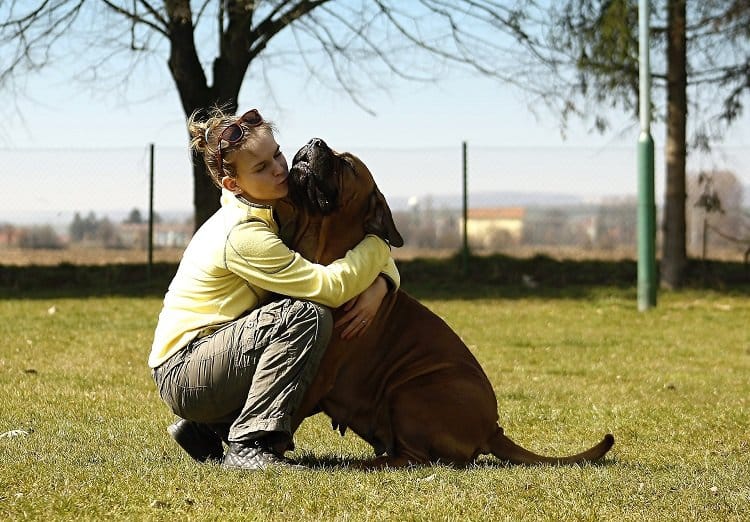The best way that you can fight anxiety is by committing to a comprehensive treatment plan. You should make it a lifestyle instead of trying it once. If medication is not working as well as you had hoped, you should talk to your therapist about getting an emotional support animal (ESA).
Here are the different ways that your therapy dog can help you to overcome anxiety:
Open the Communication Gateway
Because social anxiety is usually based on the fear of being judged by others, forming relationships with people becomes difficult. When you get an ESA dog, it will not judge or criticize you; this means that it will earn your trust quickly. Moreover, when you look into the eyes of your dog, you will strengthen your bond and open emotional pathways that might have been hiding because of anxiousness.

You might have heard people saying that the eyes are the windows of the soul. In this case, the phrase does not just apply to relationships with humans. Looking your dog in the eyes is just like looking into the eyes of another human being and it teaches you to be more comfortable with eye contact.
Exercise
There is a link between anxiety management and exercise. If you do not exercise at all, you are more prone to developing anxiety disorders. When you take your ESA for walks, you will experience the following benefits:
- Tire your muscles out and keep anxiety symptoms at bay
- Releases neurotransmitters, which affect your mood positively
- Burn any stress hormones that might trigger anxiety
If you are trying to overcome anxiety, taking your dog out for walks will give you a daily dose of exercise. Even if you do not care about fitness, you should exercise to improve your mental health. Moreover, the idea of letting your dog down will motivate you to go for a walk even when you do not feel like it.
You should let your ESA be your jogging, walking, and hiking buddy if you need daily motivation and a boost to get out of the house.
Purpose and Confidence
A dog will love you unconditionally no matter what fears you have. Owning a dog will also give you a sense of responsibility because the pet looks up to you for everything. The comfort that you feel when petting a dog has many benefits that surpass the feeling of connecting with another living thing.
Spending a few minutes with an ESA dog can decrease your levels of cortisol and increase your oxytocin levels. This is why employers hire ESA dogs during stressful times.
Promote Natural Conversation

Just as a therapy dog is a great workout friend, it also plays an important role in stirring up conversations with strangers. People who suffer from social anxiety have a hard time talking to strangers, but an ESA will make it easier for people to approach you. Although this might seem frightening in the beginning, talking to strangers about your dog is the best way to practice for in-depth conversations.
According to emotionalsupportanimalco.com, people are more likely to interact with strangers who have dogs than those who do not. When a stranger walks up to you, talk about your dog and your confidence will grow. The benefits of having a therapy dog by your side as you deal with social anxiety are immense.
You need to speak to your therapist to figure out if you need an ESA. If you already have a dog, you can ask your therapist for ESA letter. People suffering with debilitating anxiety that does not allow you to leave the house, you should consider getting a therapy dog.

